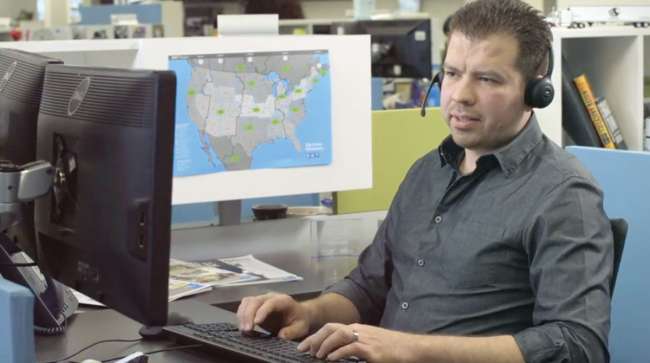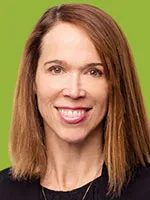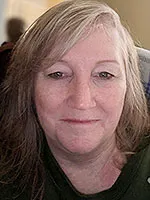Reports of Double-Brokering Increase

[Stay on top of transportation news: Get TTNews in your inbox.]
Double-brokering — when a carrier accepts a load and then illegally re-brokers it to another carrier — is on the rise, costing brokers and carriers millions of dollars, and hurting legitimate businesses.
Several red flags can alert companies to scams, and brokers said they’re scrutinizing everything from ELD records to IP addresses.
“We’re continual victims of this fraud, but we are doing everything in our power to stay ahead of it,” said Shayn Thrift, carrier risk and operations manager for Armstrong Transport Group, a third-party logistics provider based in Charlotte, N.C., adding that cases of fraud have increased substantially this year.

Reinke
Anne Reinke, president & CEO of the Transportation Intermediaries Association, said reports of double-brokering through its Watchdog reporting system have been ticking up since December. “It is far more prevalent than we’ve seen in a while,” she said.
There are two primary types of double-brokering. In one, legitimate carriers accept loads but don’t have capacity, so they double-broker it even though they don’t have authority. While it is still illegal, there are often no claims unless there is an accident or a load is damaged. With fraudulent double-brokering, someone contracts with what they think is a legitimate motor carrier that then re-brokers the load.
“Another carrier accepts the load expecting payment, and that payment is nowhere to be found,” Reinke said.
Cassandra Gaines, founder and CEO of Carrier Assure, a provider of performance scoring software, said double-brokering presents a security issue. “Brokers and shippers do not know who is actually in the custody of the goods,” she said. “If something goes wrong, there is often no cargo insurance. Even worse, there is a higher risk of theft.”
In Q4 2022 and Q1 2023, Truckstop, a load board provider, saw a 400% increase in double-brokering complaints, said Brent Hutto, its chief relationship officer. “Complaints reflect what is going on in the marketplace,” he said. “This is a constant in our market and sometimes it is worse than others.”
Today, about 30% of freight is moved in the spot market. “The sheer volume going through the spot market is much higher than it has ever been and is only predicted to increase,” Hutto said, adding that double-brokering tends to increase in a down market. “I don’t know why that is other than, anecdotally, the marketplace is more desperate to get freight at a profitable level.”
Looking for Solutions
Those in the industry said a lack of enforcement is encouraging fraud. “Right now, it is the perfect crime,” Reinke said. “There is no actor who is trying to stop it other than the broker community and, to some extent, the owner-operator community.”

Industry insiders say the broker and owner-operator community have become more proactive in discovering double-brokering fraud. (Comstock via Getty Images)
There have been 80,000 complaints since the national consumer database started in 2012, but the Department of Transportation’s Federal Motor Carrier Safety Administration hasn’t investigated them, Reinke said. FMCSA has said it doesn’t have the authority to apply civil penalties in commercial disputes, but Reinke said the agency could do more. “They could investigate, take these guys out of service, put heat on them and make it painful to commit fraud. FMCSA has said they’re resource constrained.”

Hallbauer
Nancy Hallbauer, vice president of agent operations for Business to Business Logistics (BTB), said there needs to be more state and federal agency involvement. “There are so many government agencies turning a blind eye to it, but they know it is going on,” she said. “The problem is that DOT is handing out MC numbers like candy at Halloween. There is virtually no vetting.”
The Motor Carrier Safety Selection Standard Act, introduced in February, would implement an interim motor carrier selection standard that requires entities like shippers and brokers to verify certain trucking registration requirements before selecting them. “It would provide a greater sense of comfort over who you’re choosing,” Reinke said.
BTB has instituted new securities and protocols to minimize the risk of hiring a double-broker carrier. “It is an everyday vigilance that can be exhausting,” Hallbauer said, adding that BTB won’t work with anyone who has been in business for less than three months and only uses carriers with roadside inspection history. “If you’re stating you have 10 trucks and you have no inspections on those trucks, there is a problem.”
Hallbauer has identified several insurance companies double-brokers use and will not use any truck insured by them. Plus, Gaines recommends companies verify insurance. “Actually call the insurance broker and ask how many trucks are insured and the VINs,” she said.
It is also important to verify carriers’ physical addresses. “I looked up one today and it was a vacant lot,” Hallbauer said. “Some are in office buildings, and you look them up and there are 10 other people in the same office building. They are usually in a crew together.”

Hutto
Some carriers will exit the market and then come back with a new motor carrier number, but they’re domiciled at the same address, Hutto said.
Multiple carriers and brokers using the same IP address is also a concern. “Sometimes there are 15 different companies that have the same IP address,” Hallbauer said.
Armstrong’s Thrift looks for a failure to maintain or provide electronic logs. “I’m getting mixed information on that load, the first thing I’ll request is ELD logs,” she said. Other red flags include companies using Gmail addresses, resisting tracking apps or refusing to provide a driver’s cellphone number. “These things don’t mean they’re bad, but they are things to pay attention to,” Reinke said.
Detail-oriented employees are one of the best defenses against fraud. “We advise our agents to reach out to the verified contact or the corporate number to confirm the driver’s name and number is associated with that company,” Thrift said.
Gaines warned that companies need to make sure they’re talking to the actual carrier and not a person pretending to be a carrier. “Second, thoroughly vet the carrier. It is difficult because detecting these scams can be hard,” she said.
Thrift asks Armstrong’s agents to pull reports from Carrier411, a carrier monitoring service, take a screenshot and connect it to the load.

Carrier Assure ranks carriers. (Carrier Assure)
Carrier Assure ranks carriers, and Gaines recommends companies avoid using carriers with a D or F score. “Report the carrier you hired for double-brokering on Carrier Assure to alert other shippers and brokers in the industry to avoid this carrier,” she said.
Truckstop has implemented procedures to fight fraud. “I can’t speak to it because we don’t want to show the easy way to rob the bank,” Hutto said. “It bothers us a lot — to the point we’re willing to employ an entire division to help protect the customer.”
Truckstop ranks and grades every broker and vets them every 90 days. “If it is an A or B, they probably have been on Truckstop for a long time,” Hutto said, adding that carriers are ranked and vetted every time they log onto the load board. “Anyone that is not playing by the rules, we do not let them have access to the board. We do a lot of data vetting to ensure information is accurate.”
Due Diligence
Spoofing is another problem brokers face. “Someone stole one of our rate confirmations and started calling carriers saying, ‘We’re Business-to-Business,’ and faked a bunch of stuff,” Hallbauer said, adding that the fraudster even created an email address similar to BTB’s but didn’t have the correct phone number.

Thrift
Armstrong had a fraudulent entity use its rate confirmation information and try to send freight out as Armstrong loads. “For the carriers, confirm your load with the corporate number,” Thrift said.
Carriers should always ask in-depth questions, Hutto said. “If a broker is trying to rush you off the phone, that is a sign. When you get the information, call the contact information on the bill of lading to get proof that it is really there,” he said. “When the person you’re doing business with is legitimate, they don’t mind passing you information.”
Double-brokers often offer higher-than-market rates to the end carrier. “If it sounds too good to be true, it probably is,” Hallbauer said.
Carriers and brokers can discover double-brokering at any point in the transaction. “It can happen almost instantaneously,” Reinke said.
If a broker discovers they’ve hired a double-broker, they shouldn’t pay the carrier they hired. “Hold your money until you know who the real carrier that transported the goods is. You must pay that carrier,” Gaines said.
Double-brokers often request a quick-pay option, which provides accelerated payment terms for a processing fee. “That is how they get us. A lot of times, unfortunately, we’ve already paid the fraudulent carrier. Once the payment goes out, we never get it back,” Thrift said. “We do try to get the end carrier compensation, but we’re basically having to pay double for it.”
BTB won’t give fuel advances or quick-pay to someone who hasn’t hauled for the company for three months.
Want more news? Listen to today's daily briefing above or go here for more info
Brokers sometimes see costs for double-brokering as part of doing business because they want to retain the shipper customer. “If you’re a small broker, you don’t have the money to do that. It can put companies out of business,” Reinke said.
While the industry is working to increase awareness, one of the biggest challenges is keeping up with the criminals. “The more we talk about it, the more they pivot,” Hallbauer said.
For Thrift, it is a constant chase. “They’re going to realize you’re catching up to them, so they’re going to make their processes better," she said. "The problem with fraud is there are always holes.”




